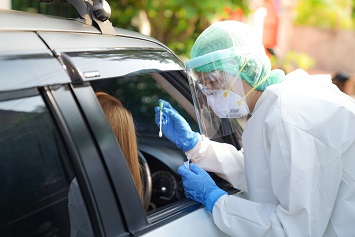On October 21, the Centers for Disease Control and Prevention (CDC) announced updated COVID-19 guidance, specifically the definition of “close contact.” The expanded definition states that the 15-minute exposure period should be measured based on a cumulative amount of time over 24 hours and not just a single 15-minute interaction.
The previous definition of close contact was someone who spent at least 15 minutes within 6 feet of a person with a confirmed case.
The CDC now defines close contact as “someone who was within 6 feet of an infected person for a cumulative total of 15 minutes or more over a 24-hour period starting from 2 days before illness onset (or, for asymptomatic patients, 2 days prior to test specimen collection) until the time the patient is isolated.”
The updated definition was announced the same day the CDC released a case study about the agency and the Vermont Department of Health (VDH) finding that multiple short exposures to people confirmed to have COVID-19 led to transmission of the virus.
During a contact tracing investigation described in the study, it was found that COVID-19 was transmitted to a correctional facility employee who interacted with people later found to be COVID-19-positive. The employee had 22 interactions totaling 17 minutes during an 8-hour shift.
As a result of the expanded definition, contract tracing programs will be complicated, and businesses and schools could have a more difficult time staying open. The CDC recommends that a person quarantine for 14 days if he or she experiences a close contact exposure with someone who later is determined to have been COVID-19-positive at the time of the contact. The new guidance will require employers and adminstrators to count numerous short-duration contacts over the course of a work shift or school day, possibly resulting in more close contacts that will require quarantine.

